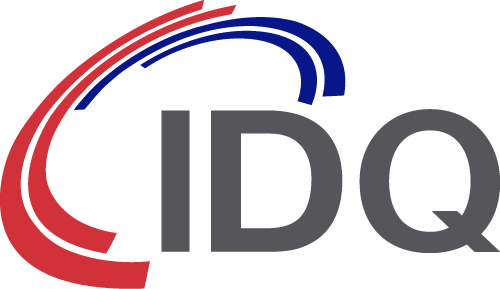Quantum Computing Review Q2 2023
Welcome to the latest edition of our Quantum Computing Review, featuring some of the interesting stories from the period covering April to June 2023. In this edition we highlight significant activity from China, Korea and Australia, plus the latest innovations from IBM, Microsoft and IonQ and emerging applications of quantum technologies in fluid dynamics, healthcare and financial services.
Global Initiatives
In May, the Australian Government launched its landmark National Quantum Strategy, which set out a long-term vision for how Australia will take advantage of quantum technologies. The strategy comprises five core “themes” with one guiding vision:
In 2030, Australia is recognised as a leader of the global quantum industry, and quantum technologies are integral to a prosperous, fair and inclusive Australia.

- Thriving research and development, investment in and use of quantum technologies.
- Securing access to essential quantum infrastructure materials.
- A skilled and growing quantum workforce.
- Standards and frameworks that support national interests.
- A trusted, ethical, and inclusive quantum ecosystem.
China Telecom’s $430 million investment in quantum
Also in May, China Telecom announced it had invested over $430 million to establish the China Telecom Quantum Information Technology Group Co. Based in Anhui, the new organization will be focused on the development of quantum technologies and the promotion of quantum initiatives across the country. In the statement, China Telecom stated the development was “a practical action to thoroughly study and implement the spirit of General Secretary Xi Jinping’s important instructions on the development of quantum technology”.
IonQ expands its global quantum initiatives
2023 has been a busy year for the US quantum computing firm IonQ. In Q2 it announced agreements with entities in Switzerland, the United Arab Emirates and South Korea. In April, it announced a new agreement with the UAE Quantum Research Center in Abu Dhabi that will provide Center employees with access to the IonQ Aria system.
In June IonQ made two further announcements. First, a collaboration with QuantumBasel to establish a European Quantum Data Center. Second, a memorandum of understanding with South Korea’s Ministry of Science and ICT to support the development of the country’s national quantum ecosystem.
Ground-breaking quantum performance
IBM announced it had made a significant breakthrough by avoiding the quantum noise that introduces errors in calculations, to deliver reliable performance at scale “beyond brute-force classical computation”.
In a paper published in Nature, researchers provide “Evidence for the Utility of Quantum Computing Before Fault Tolerance”. They state the results were made possible by advances in the coherence and calibration of a superconducting processor, and the ability to characterize and controllably manipulate noise across a 127-qubit device.
In its “Azure Quantum: Accelerating Scientific Discovery” virtual event in June, Microsoft published its quantum supercomputer roadmap along with a peer-reviewed paper with evidence that Microsoft has achieved the first milestone towards creating a reliable and practical quantum supercomputer. In the paper, published in a journal of the American Physical Society, researchers describe how they are paving the way to stable qubits.
For more details on Google’s journey towards an error-corrected quantum computer, check out its interactive quantum map.
In other news, scientists from Quantinuum, in collaboration with researchers at Caltech and Harvard claim they have been able to create and manipulate non-Abelian anyons, paving the way to an alternative approach for creating a fault-tolerant system that would, theoretically, reduce the need for error correction.
Industry applications of quantum computing
In recent months we have seen collaborations between technology and industry leaders as global businesses begin to explore the real-world applications of quantum computing.
In April, IBM and Moderna announced a partnership, through which they will be exploring the use of quantum computing and generative AI technology in the development of future mRNA medicines. Commenting on the announcement, Dr Gil, Senior VP and Director of IBM Research said: “Moderna will be able to take advantage of our multi-year research efforts in generative AI for therapeutics that can allow scientists to better understand how molecules behave and may facilitate creating entirely new ones”.
In May NVIDIA, Rolls-Royce and quantum software company Classiq announced a breakthrough in computational fluid dynamics for jet engines. Between them, the businesses have built the world’s largest quantum computing circuit for fluid dynamics. With a depth of 10 layers, the circuit features 39 Qubits.
“Applying both classical and quantum computing methods directly to the challenge of designing jet engines will help us accelerate our processes and perform more sophisticated calculations,” said Leigh Lapworth, computational science fellow at Rolls-Royce.
In June, HSBC revealed it was running a series of quantum projects to evaluate potential near and long-term financial services applications, with particular emphasis on cybersecurity, fraud detection and natural language processing.
“Our collaboration provides us a great opportunity to access cutting-edge quantum hardware and take our use cases to a truly transformational level,” said Philip Intallura, Global head of Quantum Technologies at HSBC.

Quantum resources
Finally, there are some useful quantum resources out there. Two that have been published recently are McKinsey & Company’s latest Quantum Technology Monitor, which provides a summary of recent quantum investments and innovations, and the World Economic Forum’s Quantum Readiness Toolkit. The latter, produced in collaboration with Deloitte, outlines five guiding principles to help any organization to transition to a quantum-secure stance.
IDQ in the news
Photonic Chip-based QKD achieves higher transmission speeds
ID Quantique joins EAGLE-1, Europe’s pioneering quantum key distribution initiative
SK Telecom and Samsung unveil the Galaxy Quantum 4, featuring IDQ’s QRNG Chip
IDQ and Singtel sign memorandum of understanding on Singapore quantum ecosystem
Cerberis XGR QKD supports quantum secure data exchange between Singapore data centres
IDQ partners with Nokia and Proximus for hybrid quantum encryption trial



